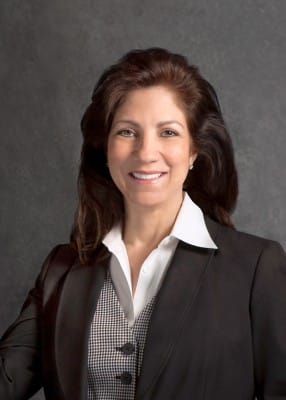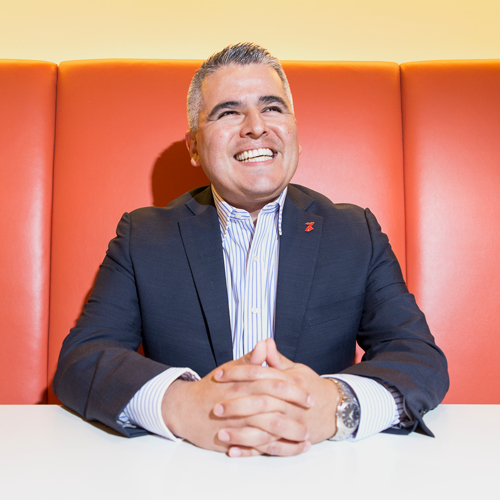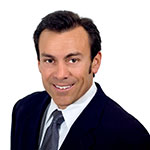At the start of the global financial crisis, Jennie Salazar made a risky move. She left a position with a major corporation to start her own intellectual property law firm.
“Very few attorneys go from an in-house position back to a law firm,” she explains. “An in-house attorney has predictable income and working hours, whereas an outside counsel often works around the clock.”

Founder & Managing Attorney
The JL Salazar Law Firm
Though risky, Salazar did not make the decision to open her namesake law firm hastily. She knew there would be a surge in patent cases, and she wanted to better position herself.
As in-house counsel for a major international corporation, Salazar spent seven years handling multimillion-dollar patent and trademark portfolios. When outside lawyers were brought on board, she followed how they tailored documents and managed their cases. She admired the details and nuances of their work. Salazar also developed a knack for learning the best practices of outside counsels.
“Very few attorneys write high-quality patents. Most people cannot tell the quality of a patent until there is a problem,” Salazar says. “My goal is to provide a well-crafted product.”
When Salazar left her corporate position at the beginning of 2008, she landed on her feet with the financial stability to start the firm. The hierarchy in the legal industry often means small boutique firms go to the bottom of the food chain.
Instead, Salazar pursued a strategy of bringing in talent from large corporations and pedigreed firms-—whose client base marked a long list of corporate titans— and then going out and networking.
“We have to work hard to introduce ourselves to corporate clients. People won’t hire us if they don’t know us and our experience,” Salazar says. “We have the expertise of a large firm, but without the costs or the rigid structure. This gives us a huge advantage. We can outprice and outperform other firms.”
While other firms struggled through the financial crisis, Salazar’s firm saw tremendous growth. “We had a very modest beginning. We did everything on a dime. That is the secret to why we survived and many didn’t,” she says. She built a team of top attorneys and an enviable client base at a time when many other firms were closing their doors.
Competitors marveled at Salazar’s strong ties with large corporations and her ability to attract top attorneys. Continuously building her network, the Latina entrepreneur worked hard to market her firm to corporate clients by serving on numerous committees and sponsoring many community-facing events. “I see being a Hispanic and Latina as a distinct advantage. There are so few in my industry; I stand out and people remember me,” Salazar says.
The JL Salazar Law Firm doesn’t fit the mold of a typical law firm. The boutique stewards patent filings for some of the world’s largest corporations in the chemical, oil, medical, and other industries. While big corporations reigned in spending after the financial crisis and the legal market grew intensively competitive, Salazar’s team managed to generate legal work from Fortune 500 companies, including ones that rarely award contracts to small law firms.
“Grow your experience, live modestly, listen to what people need, and make connections with everyone, not just those that you think can help you.”
Salazar’s team has taken advantage of the tailwind of an ongoing change in the legal landscape. Intellectual property law evolved from a boutique area into a major branch that carries predictable economic and marketing consequences. The rise of billion-dollar valuation-technology startups as well as the shale gas boom has sparked a race to protect high-tech products.
“Every business has intellectual property that can be cultivated. For example, startups that wish to sell their companies are using patents to increase their value, businesses are setting themselves apart from others with trademarks, and individuals are creating copyrighted works in their own homes. We work to design a strategy that meets their business needs,” Salazar says.
The next biggest challenge for the firm will be establishing an international reputation. This year, the firm will be adding new attorneys to expand its practice areas and to evolve from an independently owned firm to a jointly owned firm.
For Salazar, there is no looking back. With a team of top lawyers in place, she feels there are no limits. Salazar continues to serve the community and mentor young attorneys seeking to develop their practices, advising younger lawyers to simply do the work. “Grow your experience, live modestly, listen to what people need, and make connections with everyone, not just those that you think can help you,” Salazar urges.

